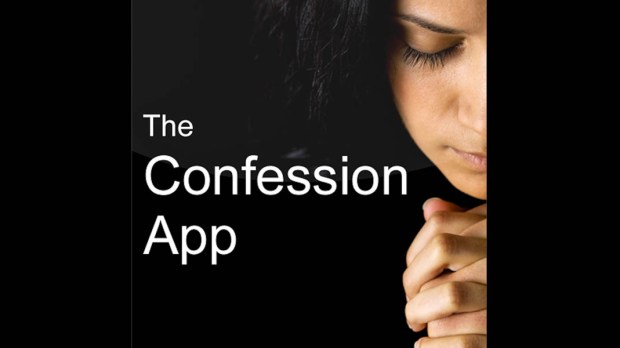Lenten Campaign 2025
This content is free of charge, as are all our articles.
Support us with a donation that is tax-deductible and enable us to continue to reach millions of readers.
As a priest, I increasingly find myself being asked whether a person can participate in the sacrament of Reconciliation via their smartphone.
This is less irreverent than it might at first seem. Instant communication has made even long distances seem irrelevant. Texting, Skype and Facetime seem almost intimate — so much so, in fact, that it seems natural for people to feel that these tools could be used in their spiritual lives.
One problem, though: with Confession, we are entering the realm of the sacred.
Consider this: If your wife had just gone into labor, and you were at work, would you rather watch her giving birth over Skype or would you rush to the hospital to be with her? No doubt she would want you to be physically present. If informed that your old and ailing mom or dad were nearing the end, you would rush to be with them from wherever you were in the world.
Forget about emergencies; would you prefer to have your friends watch you cut your birthday cake online, or gathered all around you? If you were ill with a fever, would you take more comfort from a friend over the phone, or one right beside you?
Let’s face it, for the things that really matter to us, we crave physical company. Of all the five sensory organs in our body, only one covers every inch of our body — our skin – the means by which we touch and are touched, feel and are felt. A virtual embrace cannot be the same.
In the realm of the sacred, our physical presence matters. We cannot allow our relationship with God to be mediated by technology. God came down to this world physically – in the flesh — to be with us and to save us. He did not simply text out his Word, he enfleshed his Word, and dwelt among us.
Hence we cannot receive the sacraments by virtual means. We must show up – be physically present, as Christ is himself present to us.
The Church is firmly and unequivocally clear that the sacrament of Confession cannot be received over the telephone. It must be done physically in a face-to-face encounter with a priest, who receives our contrition in personaChristi – “in the person of Christ,” through whom Christ himself counsels and absolves us.
There are a number of “confession apps” available today, but their purpose is to help prepare people to make a thorough examination of conscience before they actually step into the confessional. They cannot and do not substitute for the confessional. You can talk to your priest over the phone and discuss things with him, but he cannot absolve you of your sins over the telephone.
We should be cautious of allowing technology to act as an intermediary in what is deeply human and spiritual. Could you imagine the absurdity of opening the floodgates to “online sacraments”? Maybe some parents would want to baptize their child at home in the future, with a priest pronouncing the Trinitarian formula by way of Skype, but it seems a poor means of bringing the child into community with the Church, doesn’t it?
I’ve had some people come to me and admit that they could not attend Sunday Mass in Church but they justify it by saying “We watched the pope’s Mass on television.” Some seem to believe that watching Mass on television is the equivalent of participating in the Sunday Eucharistic liturgy, but passively watching Mass on television is only justified for those who are elderly, infirm and homebound or those who cannot make it to Church for some grave reason. If you are physically able to come to Church, watching a broadcast will not do. Come to Mass. Meet the Lord where he is!
The worship of God is not a solitary act, but is done with the Eucharistic Community of which Christ is the head. The commandment to love your neighbor, the Eucharistic fellowship, the Eucharistic banquet, Jesus’ words “where two or three are gathered in my name, there I am in the midst of them” all point to this communitarian dimension of the Church. We are not meant to be isolated, but together in worship, praise, and petition. In times of stress, we need the strength and prayers of the community.
As the Catechism notes:
“You cannot pray at home as at Church, where there is a great multitude, where exclamations are cried out to God as from one heart, and where there is something more: the union of minds, the accord of souls, the bond of charity, the prayer of the priests.”

